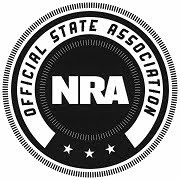This session, the governor has proposed a commendable criminal-justice reform package. It includes a badly needed adjustment to the state’s standard for felony grand larceny. The figure was set at $200 in 1980, and has not been changed since. Had the threshold kept pace with inflation, it would be more than $500 today.This isn't the first time Governor McAuliffe's actions have unintentionally made it easier for nonviolent offenders to regain their gun rights. When he started restoring the rights of felons who had completed their sentences he took away one of the steps that those individuals had to take to restore their gun rights - petition a court:
Critics call the proposal a cost-of-living adjustment for thieves, which is clever but misleading. Pegging the standard to inflation keeps it constant in real-value terms. Failing to adjust for inflation actually lowers the threshold in constant dollars. Today’s $200 threshold is the equivalent of only $68 in 1980 dollars. Twenty years from now, assuming only 2.5 percent inflation, the threshold will fall to only $42 in 1980 dollars. (Assuming 5 percent inflation, it would fall to only $25 in 1980 dollars.)
Adjusting the felony standard does not allow criminals to steal more; refusing to adjust it makes a felony out of ever-smaller offenses. That gets expensive fast. Virginia spends about $25,000 year per prison inmate, so a 20-year stretch for felony theft costs the state half a million dollars. Does the public really benefit from lowering the felony ceiling year after year? Do Virginians want to spend a half-million dollars to punish someone for boosting a mid-range kitchen blender from Target?
Probably not. So adjusting the felony threshold make sense. And it carries an ancillary benefit: protecting the voting rights — and the gun rights — of nonviolent offenders who otherwise would be swept up by “felony creep.”
Gov. McAuliffe probably did not intend that result of his proposal. But as he already has learned, sometimes the most powerful law is the one about unintended consequences.
Four months later, the governor grandly announced that he was restoring the voting rights of 206,000 felons. Republican heads exploded, and the ensuing debate eventually had to be settled by the Virginia Supreme Court, which struck down McAuliffe’s order, requiring him to continue making restorations on a case-by-case basis.Republican Del. Greg Habeeb has introduced legislation that would automatically restore gun rights to nonviolent felons. VSSA will be tracking this bill along with all other firearm related legislation this session. If it passes, given McAuliffe's own statement that these individuals have completed their sentence, he will be hard pressed to veto it.
In the meantime, though, a question arose: What about gun rights? Although McAuliffe’s order stipulated that “nothing in this Order restores the right to ship, transport, possess, or receive firearms,” the governor’s order made it much easier for a felon to get his gun rights back. Formerly, an offender first had to petition for restoration of his civil rights, and once they were restored, go to court to retrieve his gun rights. McAuliffe’s order eliminated the first step.
That was purely unintentional. “My actions were about giving you the right to vote, to serve on a jury and run for political office,” McAuliffe admitted. “My action, I didn’t think it had anything to do with gun rights. I stayed away from that.”
Hinkle was on NRANews' Cam and Company on Thursday to discuss the issue in more detail.








No comments:
Post a Comment